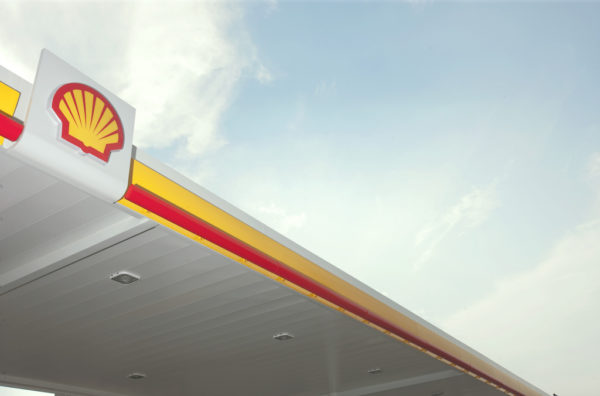Unearthed today: The day everything changed
Welcome to Unearthed today the daily climate and environment news wrap from @damiankahya. Sign up below.

It’s been a sub-optimal couple of days for top executives in the oil industry. As the BBC (and everyone) reports, a court in the Netherlands has ruled in a landmark case that Shell must cut its CO2 emissions by 45% compared to 2019 levels by 2030, the civil court ruled.
The Shell group is responsible for its own CO2 emissions and those of its suppliers, the verdict said. It is the first time a company has been legally obliged to align its policies with the Paris climate accords, says Friends of the Earth (FoE).
A Shell spokesperson said that whilst they agreed urgent action on climate change was needed, they objected to being forced to act in line with the science by a court, saying they “fully expect to appeal today’s disappointing court decision”. I’m just guessing the meeting that drafted this response did leave anyone feeling too great about their career direction.
In other news of oil executives totally failing to read the room. US oil giants ExxonMobil and Chevron have suffered shareholder rebellions from climate activists and disgruntled institutional investors over their failure to set a strategy for a low-carbon future, The Guardian’s Jillian Ambrose reports.
“Exxon failed to defend its board against a coup launched by dissident hedge fund activists at Engine No. 1 which successfully replaced two Exxon board members with its own candidates to help drive the oil company towards a greener strategy.
Meanwhile, a majority of Chevron shareholders rebelled against the company’s board by voting 61% in favour of an activist proposal from – Dutch campaign group Follow This – to force the group to cut its carbon emissions.”
To top it all off the Post reports that the Biden administration called for new protections under the Endangered Species Act for an iconic bird – the Prarie chicken – of the Great Plains on Wednesday, a move with major consequences for the oil and gas industry.
“I think it could have a substantial impact on oil and gas and energy development,” said Wayne D’Angelo, a lawyer with the firm Kelley Drye & Warren who has represented energy interests on such issues. “It’s a threat that sort of kills investment and causes problems” if the landowner modifies the birds’ habitat.
Obviously, the whole situation has triggered a flurry of oil industry analysis pieces. Worth your time is Kaufman in Huffpo and Jacobs and Raval in the FT (£).
The best evidence of what’s to come one expert told Kaufman, actually rests in a fourth oil company. Canadian giant Suncor Energy recently announced its latest five-year plan and included “almost no growth and no new projects because of high regulatory costs.”
The defeats for Exxon, Shell and Chevron on Wednesday brought the sector’s climate challenge into sharp relief, analysts said told the FT.
“This is one of those days that will be seen in retrospect as a day when everything changed,” said Andrew Logan, senior director for oil and gas at Ceres, which coordinates investor climate action.
Some other things since I last emailed:
Biden faces challenges over climate: Republican opposition to the infrastructure bill could threaten key clauses for climate, the Post reports. If a narrow bipartisan infrastructure package is passed, Democrats may have the votes to pass some parts of the families package — such as paid parental leave and an extension of the child tax benefit set to expire at the end of this year — but not aggressive climate action said G. William Hoagland, a former Senate GOP aide now with the Bipartisan Policy Center. It comes as Biden has ok’d a new Alaska oil drilling project passed under Trump.
Record heat in Russia, Canada brings climate, fire warning: Fires have erupted in Saskatchewan, Manitoba and Ontario amid unusually warm and dry conditions. It’s not unusual for Manitoba to see wildfires at this time of year, said Rob Paola, a retired meteorologist from the Meteorological Service of Canada. But “this year has been especially intense fairly early given how dry our spring has been, and our low snowpack this past winter,” he told The Washington Post.
Australia’s top beef exporter predicts tenfold UK sales surge on trade deal: Australia’s biggest beef exporter has predicted it could boost UK sales by as much as tenfold if Boris Johnson backs a zero tariff, zero quota trade deal, as cabinet ministers clashed over the likely impact on British farmers. The Australian Agricultural Company (AACo) said a UK-Australia trade deal based on full tariff liberalisation would provide big opportunities for it and other producers to expand beef sales in Britain. “In the event of a free-trade deal that removes tariffs and quotas, we could see [Australian beef] exports double or triple,” said Hugh Killen, AACo chief executive. “In fact, given exports are so small now, it’s possible they could even increase tenfold.”





